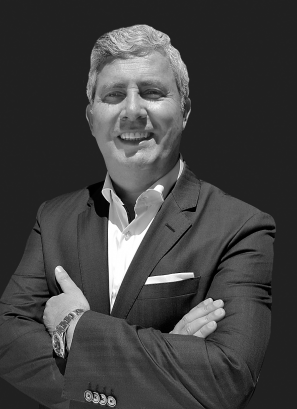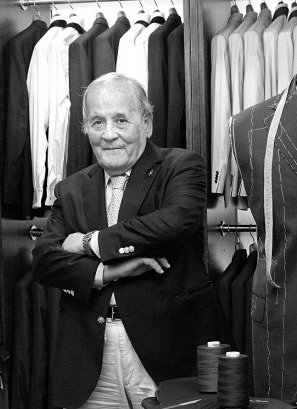
Pedro Pinto

Pedro António Costa
Paulo Morais
President of the Associação Frente Cívica
His public image is essentially dominated by his condemnation of corruption. A cause that he decided to champion in a determined and in-your-face manner. He is now president of the Associação Frente Cívica, a position that he occupied following his vice-presidency of the Transparency and Integrity organisation. He was also vice-president of Oporto City Council and in 2016 he ran to become the president of Portugal, in a life of causes that he has accumulated alongside with his university teaching. No wonder, therefore, that the answers he gives are to the point and, when necessary, blunt. He’s used to the battleground.

What led you to start a career in politics?
I first entered the public arena when I was very young, in a student association and in party activity. Because, thirty years ago, I felt that Portugal had enormous physical and human potential, but the Portuguese, in spite of this, were living badly, in general. The raw material available is excellent, but the end product (development and quality of life) is disappointing. Because the organisation fails and politics fails. And since I understood that I could help to improve the society in which we live a little, from that point on I decided to step in.
Do you feel that condeming corruption is heard as much by civil society as by the authorities?
Corruption is now a dominant phenomenon in national public life. Civil society has already realised the damage caused by the phenomenon, in terms of imparing quality of life. The effects on delaying development are also clear. On the other hand, authorities react defensively to the condemnation of corruption: a power that is promiscuous with business is an active part, or at least complicit, with the corruption that has become widespread.
There have been reports of many cases of corruption. Does it seem to you that this is due to a real increase in this type of crime or to more efficient investigation?
Corruption has not increased, but it has become more sophisticated and captured significant parts of power. The proliferation of news about the phenomenon is essentially due to a change, for the better, to how the public prosecution service works, which is now systematically pursuing corruption.
« CORRUPTION HAS NOT INCREASED, BUT IT HAS BECOME MORE SOPHISTICATED AND CAPTURED SIGNIFICANT PARTS OF POWER»
Would you consider standing for the Portuguese Presidency again?
A stance based on fighting corruption, poor public spending and actively fighting the poverty that arises from them is a necessity, now greater than ever. If I see, at the right time, that no one personifies this stance better than I, I will make my move. But the decision, for the time being, is premature.
How would you assess the performance of Marcelo Rebelo de Sousa in this position?
The current President comments on everything, on issues both important and trivial. Which makes irrelevant issues become dominant and ,what is more serious, turns issues that are truly essential into commonplace ones. In this way, he anaesthetises public opinion and eliminates any critical faculties, so necessary in the national public space.





